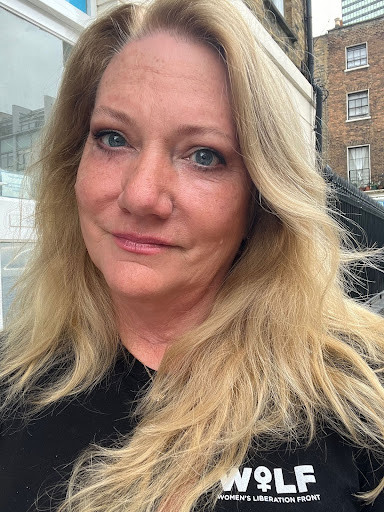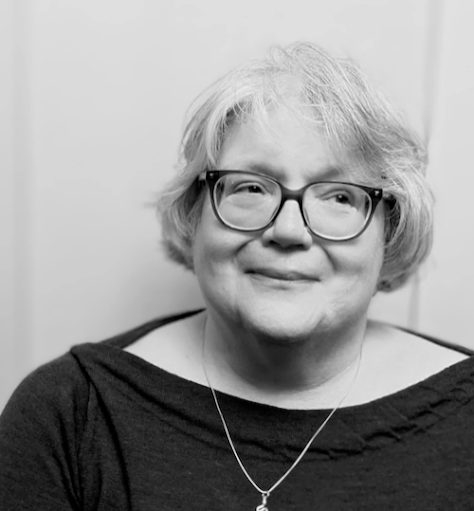
Over the decades, feminism has undergone profound shifts, expanding, intersecting, evolving. Yet as the term stretches to encompass broader social movements, some advocates argue it has lost its core purpose: safeguarding the rights, safety, and sovereignty of women and girls.
Once a powerful force rooted in the pursuit of women's self-sovereignty and rights, feminism now appears fragmented and diluted, caught in the crossfire of partisan debates and ideological battles that often overshadow the very issues it once championed.
This concern lies at the heart of the Women's Liberation Front (WoLF), a small but fierce nonpartisan radical feminist organization founded in 2013 by Lierre Keith, which aims to revive the clarity and conviction of second-wave feminism, retaining a singular focus, in today's increasingly polarized landscape on women's rights.
"Where are the feminists?" is not a rhetorical question for WoLF's leadership. "The feminism that fought for women's sovereignty is being dismantled," says Sharon Byrne, the organization's Executive Director. "What's being presented as feminist advocacy today is often more interested in aligning with political agendas than with women's realities."

WoLF deliberately avoids partisan affiliation. "There are elements of our mission that resonate with people across the political spectrum," adds Margot Heffernan, Vice President of WoLF. "And that's important. Women's rights shouldn't be a left or right issue. They are civil rights, fundamental human rights, and they need to be protected as such."

WoLF works at the intersection of law, policy, and culture, with structured policy areas that oversee the protection of women and girls from male violence, commercial sexual exploitation, and the elevation of gender over sex. For WoLF, these are not separate battles. They are all part of the same system that commodifies women. WoLF sees an important part of its work as restoring the connections that mainstream feminism has forgotten.
Elspeth Cypher, a retired Justice, now serving on WoLF's board, explains how the shift from "women's studies" to "gender studies" in academia has played a pivotal role in this dilution, with women often taking a backseat to gender identity. While intersectionality remains prevalent in public discourse, WoLF argues it should not come at the expense of the distinct needs and rights of women.
The organization's stance on gender, in particular, is one that invites complexity. WoLF advocates for the abolition of gender, but not in the way many might assume. As radical feminists, WoLF sees gender itself as a tool of women's oppression and their mission as women's liberation from gender's yoke.
WoLF has faced criticism for their position. But the leadership remains firm that redefining feminism to include everything dilutes its power to protect women: WoLF's stance on gender is about liberating women from roles and expectations that have historically harmed them.
This erosion of focus is most visible, Byrne argues, in the growing challenges to women-only spaces. These are spaces, they emphasize, built on protection. "It's about protecting women and girls. They have a right to privacy and safety, especially in environments shaped by vulnerability or trauma," she says. To this end, WoLF is representing incarcerated women to defend their constitutional rights to a safe prison environment, has filed over twenty amicus briefs in federal courts, and drafted and successfully passed the Women's Bill of Rights in several states.

WoLF's refusal to align with political parties is more than a strategy; it's a necessity. "When you're partisan, you inherit that party's contradictions," says Cypher. "Maybe one policy supports women, but another undermines them. We've seen that play out again and again. Our commitment is to women's interests, not parties or politics."
Heffernan agrees, noting how policy progress often becomes a casualty of political compromise. "We want to see real, measurable protections for women. That means being nimble, not beholden. We'll work with whoever supports our goals, but the goal is women's rights."
As for what the future holds, WoLF is thinking long-term. Their vision includes the hope of establishing stronger protections for women in the US Constitution, something more robust and explicit than what exists today. "It's time for a civil rights framework that recognizes women as a distinct class deserving of safety, privacy, and autonomy," Cypher asserts.
Byrne echoes this aspiration. "We want to move beyond theory. Success for us is about real change, laws passed, policies implemented, and women's sovereignty assured. And we know that doesn't happen unless we speak clearly about what's at stake."
At a time when feminism can mean everything and nothing, WoLF seeks to reclaim its foremost essence, embodying what the word meant to women's rights activists and suffragettes again.
Radical feminism is not extremism but a return to the roots. A framework that prioritizes women's safety, centers their experiences, and refuses to trade clarity for political convenience. The organization understands that its approach and beliefs may be unpopular in the world today, but its goal doesn't lie in public perception, but rather in action and transformations.
That means asking hard questions, starting with: Where are the feminists? And for WoLF, the answer is simple: they're here, they're spearheading change, and they're not going anywhere.







